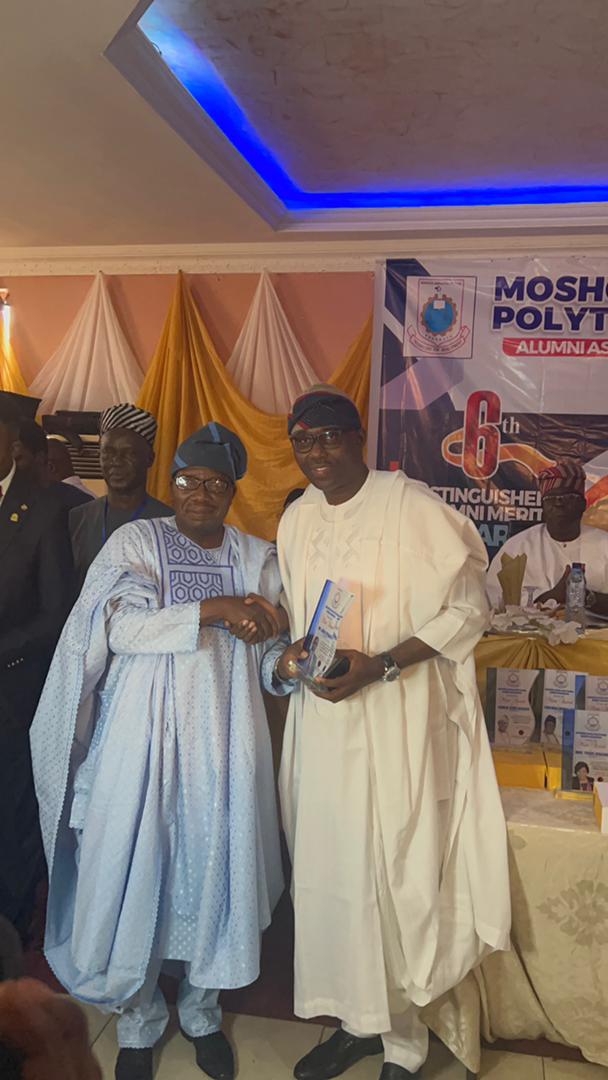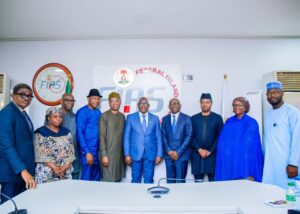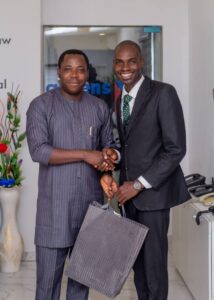(In line with what has become my annual tradition every August, I devote this column as a tribute to my friend and compatriot, General Ibrahim Babangida, as he marks his 81st birthday this week)
General Ibrahim Babangida, the former military president, has never told anyone that he is a politician nor has he seen or ever described himself as a politician. Even in 2007 when he was pressed into a political purpose by friends and loyalists, he allowed only his disciples and vast followership to confer the title of ‘politician’ on him. In the midst of that vague attempt, I confronted him with the fullest implications of his possible entry into partisan politics and contesting an election in typical Nigerian political tradition: ‘Can you, in all honesty, join market women to dance at a public square rally?’ Not waiting for an answer, I asked further: ‘Can you clown, tell open lies or promise people what you cannot deliver?’ He looked me straight in the face and retorted with an unprintable, but familiar friendly disapproval: “f..k off!”. Nonetheless, he deeply appreciated my acute reading of his personality. My point was to draw his attention to the incompatibility of his essential personal decency with the rough and tumble of Nigeria’s crass and untidy political culture.
The passage of time has not dulled Babangida’s topicality in one sphere: politics. And yet his persistent relevance in national politics is something of an anachronism, just as the man himself has remained an enigma. Instead, he has remained a proud self -confessed lifetime soldier. He is mostly a grand centurion approximating the Roman tradition of that noble calling.
Yet, since he departed office in 1993, every political season has been prefaced with the question: Who will IBB support or endorse? But he supports all and endorses none. In spite of this non-committal stance, each electoral season has taken off with a spate of relentless pilgrimages to Babangida’s retirement home in Minna. Every political hopeful, aspirant or candidate considers his ambition legitimate except it has been validated by the Oracle of Minna. Consequently, his abode has assumed the stature of a political Mecca or even Jerusalem or both.
In typical Delphic fashion, the myths around Babangida have intensified and deepened as he has gotten older. The man known for walking on both sides of the pavement at once is on home ground when it comes to political double speak: ‘We do not know those who will succeed us, but we know those who will not’. ‘Our ideological choice is clear: a little to the right and a little to the left’!
Like all sensible oracles, Babangida in old age has perfected this natural penchant for Delphic double speak. Oracles, in order to retain a certain aura of mystique and keep their pilgrims entranced, need to adopt a tongue that is replete with riddles, which compel devotees to go home, decode and reflect. To his numerous political pilgrims and visitors, Babangida neither pledges support nor withholds it overtly. To all comers, however, he has a generous understanding. Instead, he imbues all comers with hope eternal. In the process, he transcends every pilgrim’s wish for an immediate prescription for a cure -all answer.
He makes every pilgrim’s visit his own by using each occasion and its accompanying media coverage to renew his own unflinching commitment and allegiance to Nigeria. He wishes all pilgrims well, but uses their pilgrimage as a vehicle to pronounce his sincere wishes for the nation. His seasonal political wishes mirror whatever irks the nation at each given moment.
In the current season, his message has ranged from the inevitability of youth takeover of power to the urgent need for power devolution and rotation within the context of a decent democratic polity. No pilgrim leaves Babangida disappointed or unacknowledged. No one leaves Babangida’s presence with any assurance of victory. But you get a renewed hope in our country and confidence in what you can contribute to its leadership. The blessing of each encounter with Babangida is in coming face to face with the enthralling magnetism of a man of destiny, a legend of our time and place.
There is a cruel irony about Babangida’s persisting credential as a compelling political oracle among the Nigerian political elite. Even more baffling is the overwhelming belief in his political indispensability. Politicians and indeed the general populace just believe he has the magic to make things happen and that no major political development can take place without his knowledge. But here is a man, who carries the burden of the annulment of the June 12, 1993 election, which would have enthroned M.K.O Abiola as Nigeria’s president. That tectonic political development is seen by many as the single most far-reaching disruption of Nigeria’s democratic journey to date. And yet the author of that incident has now been consecrated by the political elite into a deity, whose endorsement is required to proceed with any credible political agenda.
The answer is simple. Babangida embodies the myth of eternal possibility. For a brief moment, Nigeria was led to believe in big dreams and its inherent greatness. To date, nostalgia for the grand vision that he inspired remains intact. I daresay that the essence of the Babangida magic was all about his way with power. It has everything to do with his personal magnetism, a personal charisma that disarms all who come into close contact with him. In his political actions, it is that distinctive political footwork that made the public come to see him as the political equivalent of Argentina’s late soccer legend, Diego Maradona.
Yet there was always that Machiavellian streak in Babangida’s power plays. That dexterity enabled him to navigate the brackish divides of Nigeria’s nasty calculations of old-time politicians and ambitious military officers. He was able to survive in that perilous landscape and survive as the last man standing. This is an attribute that many envy, but cannot achieve. In spite of the tragedy of June 12, the Babangida’s myth has managed to remain intact for over three decades after he left office. Consequently, the Nigerian populace has come to concede that he was a man for all ages. In a sense, he saw and acted ahead of his time. The essence of Babangida’s enduring aura, myth and legacy is perhaps the visionary quality of his intervention in national politics.
In the international context of his time, a close parallel can be drawn between Babangida and the other world leaders with whom he emerged almost at the same time in history. Ronald Reagan, Margaret Thatcher and Mikhail Gorbachev held sway about the same time as Babangida of Nigeria. Like these other great leaders, Babangida instituted far-reaching reforms in the economy of the country sometimes ahead of even the main current of world history along the path of reform. He switched Nigeria from a mixed economy to a free market one. He privatised wasteful government enterprises and transferred them into the hands of the private sector. He streamlined the political system and instituted a two-party ideas-based political system. He recognised the rural majority and women in the scheme of national affairs. He was convinced that government has no business in business.
To a great extent, Babangida ruled ahead of his time. But the general negative blanket of military rule clouded an appreciation of his vision, hence the nation failed to take full advantage of his foresight. Three decades after he left office and after a considerable initial period of public disaffection, Babangida has bounced back and persisted as a constant refrain in national politics without openly brandishing the membership card of any party. Beyond the hubris of the June 12 disaster, the Nigerian public has over these years come to a delayed realisation of the authenticity of Babangida’s vision and the redeeming value of his intervention.
Like Reagan, Thatcher and Gorbachev, he faced virulent political opposition during his tenure. Like these other world leaders, he acted in response to what he perceived as the urgent and fundamental challenges of the moment: economic deregulation, aggressive privatisation, reduction of government presence in the economy as well as a fairly transparent political process through a bottom to top democratic transformation. Decades afterwards, Ronald Reagan has become the gold standard in US conservatism economic renewal. Margaret Thatcher has become another name for the Tory legacy of privatisation and economic prosperity in the United Kingdom. Similarly, the legacy of Gorbachev in dismantling an unproductive Soviet behemoth and replacing it with a freer more prosperous Russia has become an inspirational era for the younger generation of Russians.
What links Babangida to all these great world leaders at the turn of the millennium is the visionary quality of his intervention and the courage to pursue the reforms implicit in that vision. Specifically, Britain’s Margaret Thatcher recognised Babangida’s courage and historical value hence she is on record as having encouraged him to transform into an elected civilian leader if only to consolidate his reforms. Arguably, if Reagan and Thatcher were still alive today, they would, like Babangida, have become oracles and literal political deities to the younger generations of American Republicans and British Conservatives.
Babangida’s vision was clear and unambiguous. He strove to enthrone a free market economy and two-party liberal democracy with clear ideological options. Above all, he sought to bring about a fair society in which our diversity will be fully deployed towards the development of the nation.
This was the Babangida mission and vision. He brought to this multiple mission a personal charisma and style that were distinct. The magnetism of that aura and style endeared him to a populace that was not always united in their embrace of him and his policies. Yet, his appeal and pull have endured even in the decades since he left power and office.
As he has repeatedly insisted, he was one leader, whose eyes were consistently fixated on the verdict of history. Therefore, the symbolism of this brief event has immense significance. It bore all the markings of the essential Babangida leadership: a consistent preoccupation with lasting legacies, a sense of historical permanence, a touch of imperial grandeur, an enduring vision of national greatness and, ultimately, a quest for a grand strategy for achieving national greatness.
For Babangida, these attributes were not a mere patchwork of fleeting military showmanship. He set out to fill a conspicuous void in the nation’s leadership culture, namely, the embarrassing absence of a compelling big vision and a grand strategy for nation building. For good and hardly for ill, Babangida’s legacy, in this regard, is in the articulation and rigorous pursuit of big dreams for Nigeria and the adoption of a grand governmental strategy to pursue that vision.
The combination of grand vision and grand strategy is the rare tool that distinguishes great nations from the common run of nation states. For every nation, a grand vision implies the adoption of a national big dream passed down from generation to generation. Nations propelled by such big dreams are capable of achieving feats that far outstrip their geographical size or their human and material resources. It is perhaps a combination of grand vision and great greed that could have equipped the small nation of Britain to pursue the idea of ‘Rule Britannia’ which emboldened it to conquer and colonise expansive stretches of the world as far afield as India, Nigeria, Australia, New Zealand, Palestine, East Africa and the Falklands.
The United States of America, a large country, founded on a creed of greatness is the bastion of freedom and democracy, which was destined by God to lead the world in pursuit of happiness and global power. The street mobs, who beheaded Louis XVI and Maria Antoinette stormed the Bastille in 1789 France and armed the successor republic of the French Revolution with a grand aspiration and vision. This is captured by the mantra of ‘freedom, equality and egalitarianism.’ That vision and its pursuit fired the subsequent ambiguous exploits of the French republic at home and abroad.
I doubt that our founding fathers ever rose above petty peer group bickering over regional and ethnic supremacy to articulate a coherent grand vision for the future Nigerian republic.
Perhaps this is one reason why successive Nigerian leadership has been mired in endless searches for some propelling vision (Vision 2010; Vision 2020!!).
A grand strategy is what translates a grand vision into the lived realities of citizens. It is perhaps in the Babangida administration that we approach the rudiments of a coupling of a grand vision with some governmental grand strategy for national greatness in the history of Nigerian politics and leadership.
Foreign policy is usually not the favorite turf of transient military dictatorships. Their sense of mission is usually defined by a certain tentative brevity and quest for domestic political legitimacy and international acceptability. But foreign policy is a major carrier of a nation’s vision and global mission.
As military president, Babangida served early notice that he would be different. His grand vision of Nigeria could only be identified by a bolder more assertive and even more powerful Nigeria. With the Kissingerian Prof. Bolaji Akinyemi as foreign minister, the Babangida administration pursued the kind of bold and activist foreign policy that befits an ambitious power.
Yet, by far, the most consequential institutional landmark of the Babangida administration was the far-reaching attempt to institutionalise a mandatory two-party political system for the country. The birth of the Social Democratic Party (SDP) and the National Republic Convention (NRC) was the height of idealistic institutional engineering. The current prevalence of two major parties in our political system would seem to vindicate Babangida’s vision.
A grand vision and a mostly intellectual grand strategy in a complex country was a risky combination. Yet Babangida remained undaunted in his commitment to his nationalist and visionary ideals. He even had an idealistic notion of the type of leader that should succeed him as, hopefully, the last military leader of Nigeria.
On 27th July, 1992, at the International Conference Centre, Abuja, Ibrahim Babangida delivered what could be considered his valedictory address. He was addressing the inaugural session of the newly elected National Assembly. On this occasion, he waxed philosophical by prescribing an ideal leadership type for the nation he was about to hand over to civilian rule:
“I submit for your consideration…the concept of a visionary realist as a prescriptive model of leadership…This model stresses the ability for effective implementation of vision rather than one that wallows in demagogic appeal. This model also calls for the leader who should consider himself as part and parcel of the social and political order rather than a figure situated above it…”
As we look forward to the 2023 elections, the question of appropriate leadership remains an abiding concern among Nigerians more than ever. It may be time to look back at Babangida’s prescription for the pragmatic visionary idealist as a fitting leadership model for this moment in our national history.


 Prophet Oladapo Kingsley
Prophet Oladapo Kingsley
 IBB
IBB









